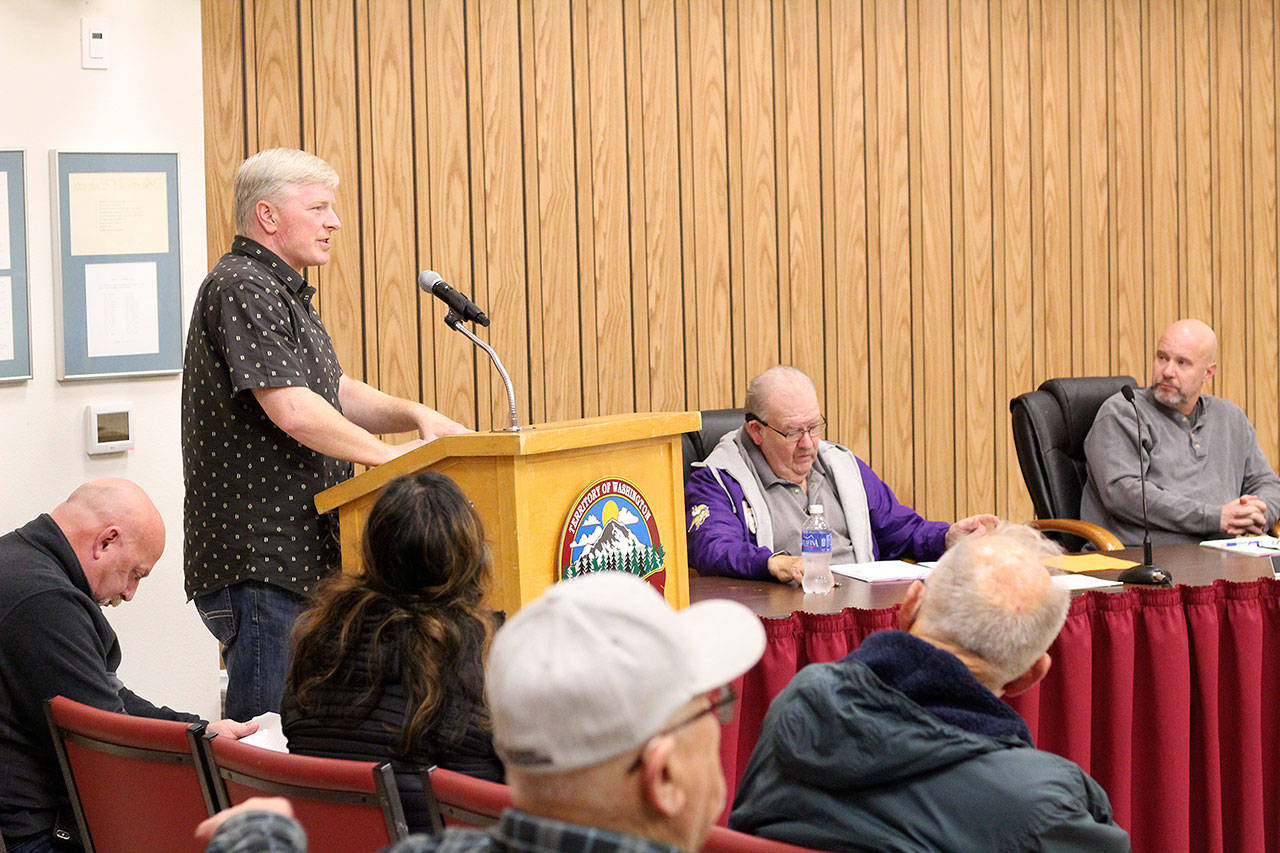Buckley has built a reputation as a marijuana-friendly community, but city officials have backed off a bit on their warm weed welcome – with room for one more entrepreneur.
The reason for the change of heart, simply, boils down to dollars and cents.
Members of the Buckley City Council initially tabled, then later passed, an ordinance that places a limitation on the number city parcels available for all aspects of the commercial marijuana trade. The ordinance was suggested by the city’s Planning Commission and followed in the wake of an emergency moratorium – first adopted in March and renewed in August – that called a halt to any new marijuana operations.
“There were a couple of questions the council wanted answered before moving forward,” Mayor Pat Johnson said. With those questions apparently answered, the City Council approved an ordinance Oct. 9 that gets rid of the moratorium but, in its place, sets firm limits on the number of retailers, growers and processors.
As a starting point, Buckley had no qualms about welcoming the marijuana trade to town. Johnson points out that city voters largely supported Initiative 502, the ballot measure that now permits the selling of marijuana for recreational purposes. Statewide, the initiative received 56 percent support in November 2012.
Aside from reflecting local sensibilities, the tax money reaped by the small town was a bonus. Buckley was able to added a full-time police officer with the revenues generated by marijuana sales in town.
Fast-forward to today and Buckley is home to a pair of retailers – Mr. Bill’s and The Green Door, both with state Route 410 addresses – along with three sites dedicated to producing the crop and a pair of processors.
But because the ground rules have changed, Buckley has shouted “enough.” With one exception: the ordinance approved last week provides room for one more processor.
The ordinance passed by the Council spells out four key provisions:
• the city prefers that its available commercial land by used for retail purposes, since retail sales boost Buckley’s tax base;
• conversely, “marijuana producing and processing facilities do not pay taxes on sales of their products,” thus running contrary to the city’s stated goal;
• it is stated clearly that Buckley “desires to prevent additional facilities from locating within the City” and, finally;
• city government “desires to limit the number of parcels on which marijuana facilities are located.”
Johnson notes the city has experienced a financial loss on two fronts.
The first setback is the loss of prime real estate to an industry that does not generate sales tax. Second, she said, the state has dramatically changed the way it disburses tax dollars.
Johnson points to just a couple of years ago, when marijuana sales supported the cost of adding new police officer. Then, dollars were returned to communities based on local sales. Now, Johnson said, dollars are linked to population, despite sales.
Given Buckley’s rather small headcount, its share of weed revenues has dramatically decreased.
“This is something new for the state, so they’re constantly changing the rules,” Johnson said. “There’s a big revenue stream, but they’re not giving it (money) to the communities that allow it (marijuana).”
COUNCIL HEARS BUSINESS PLAN
Prior to taking a final vote Oct. 9, council members heard from Joseph Sewell, who shared his vision of filling the existing opening for a marijuana processor while also adding a wine and beer shop.
Sewell said he has developed a business plan with Doug West, the owner of Mr. Bill’s. While the marijuana component of the new enterprise would largely be out of public view, Sewell said, the wine and beer venture would be a visible part of the Buckley business scene, sharing space at Mr. Bill’s.
“I think a lot of you would be really interested” in what his proposal could bring to the city, Sewell said. With that, he detailed the potential for indoor and outdoor seating, tie-ins with other local business, special events and – perhaps most important – another reason for out-of-towners to visit Buckley and spend money. Aside from the added tax revenue, Sewell estimates the venture would create between 10 and 20 new jobs.
“This would be a very nice place for people to come and enjoy themselves,” he said.
Fielding a question relating to the marijuana end of the operation, Sewell said his operation would entail no growing and would emit no odor.
“You wouldn’t even notice a cannabis business was there,” he said.


